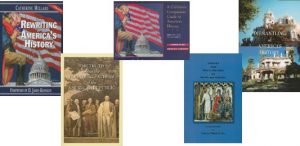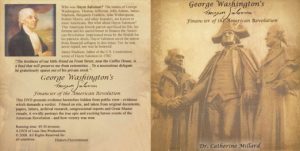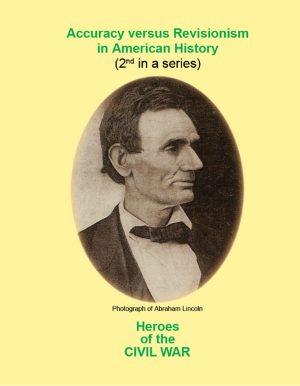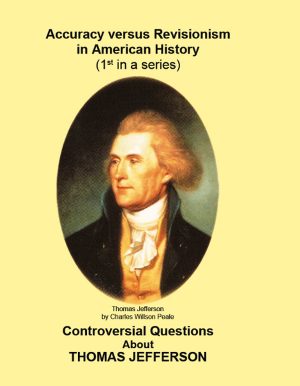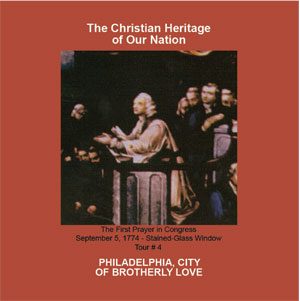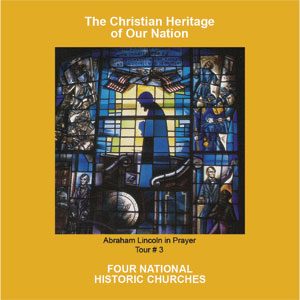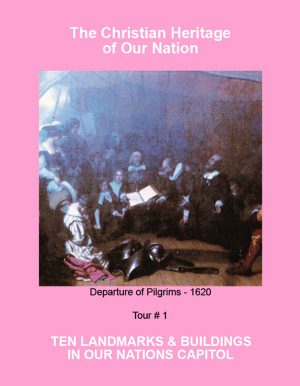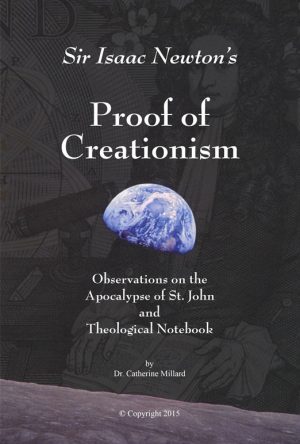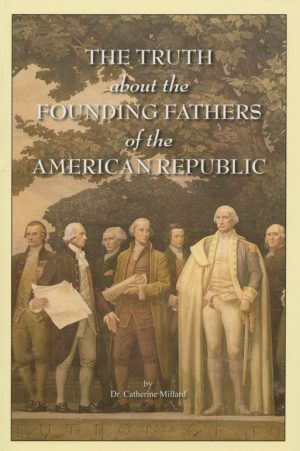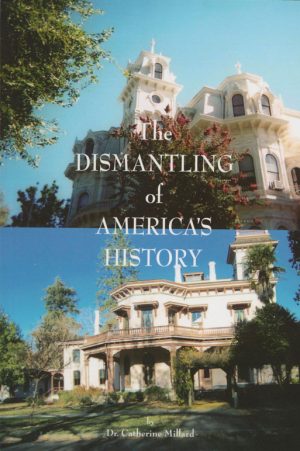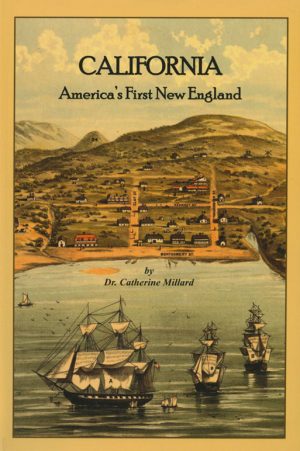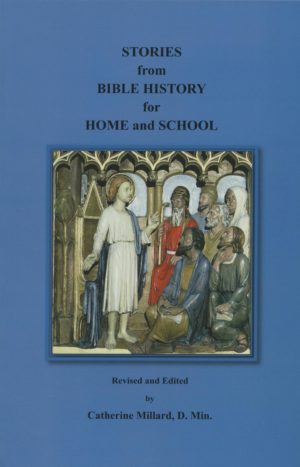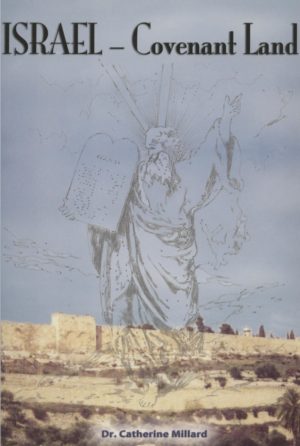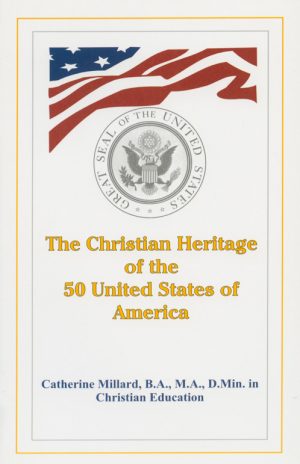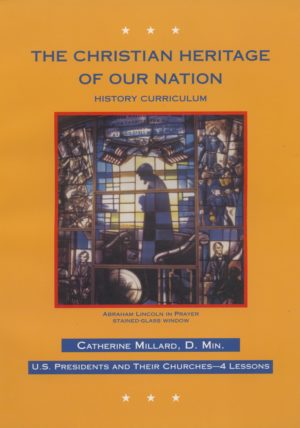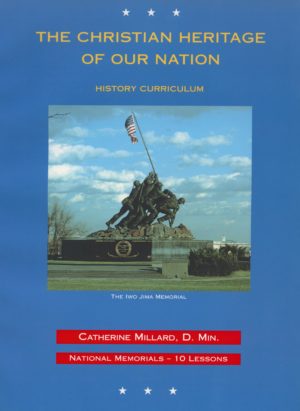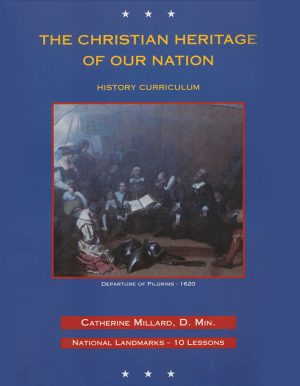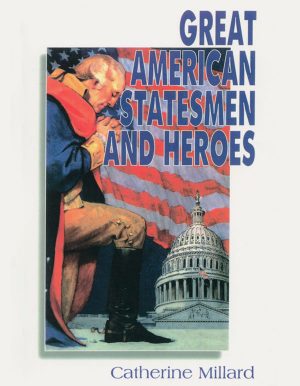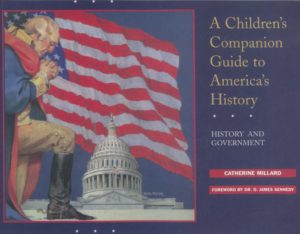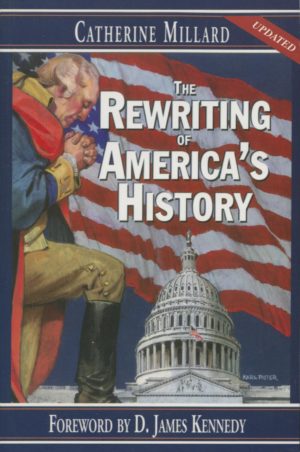On February 19th, 1795, the day proclaimed by Washington as a national Day of Thanksgiving and Prayer, the first President attended Christ Church, Philadelphia (where he worshipped regularly), and heard a Sermon preached by Rev. William White, D.D., Rector, and Bishop of the Protestant Episcopal Church of Pennsylvania. The Sermon preached on this occasion is entitled, A Sermon on the Reciprocal Influence of Civil Policy and Religious Duty, and dedicated, “To the President of the United States,” reading as follows:
Dedication
to the
President of the United States
“SIR,
The liberty which I take, of sending the following Sermon from the press, with a dedication to the first Magistrate, is not from the thought, that I can, in any way, add to a reputation, so high as his, in our own country and throughout the world; but for a use, which arises out of my argument. The relation which I have asserted of religion to civil policy, is well known to be chimerical by some; while it is contemplated by others, as involved in whatever relates to the prosperity of the commonwealth. If a question should be raised, concerning the sense of the governments under which we live, it cannot be denied, that persons of the latter description may appeal to many particulars, in law and in practice which can be defended on no other ground, than that of the propriety of the States availing itself of the religious principle in the minds of its citizens, in order to answer the purposes of its institution. When, therefore, in addition to constantly operating sanctions, we hear the voice of our country calling on us to assemble, for the express design, of offering our acknowledgments to the Almighty Ruler of the Universe, for His prospering of its counsels, and of invoking the continuance of His mercies; it is another sanction of the latter opinion, which the advocates of it cannot fail to notice, as being to their purpose; especially if it be aided by the reputation of those, from whose authority it proceeds.
It cannot have escaped the notice of any, that, since your elevation to the seat of Supreme Executive authority, you have, in your official capacity, on all fit occasions, directed the public attention to the Being and the Providence of God: And this implies a sense, as well of the relation, which nations, in their collective capacities, bear to Him, their Supreme Ruler; as of the responsibility to Him of earthly Governors, for the execution of the truths committed to them. Even had such acknowledgments come from anyone, whose conversation or whose conduct were in opposition to the principle implied; still they might have been pleaded, as an homage to the truth, extorted by existing circumstances or by some selfish views; at the expense of the violation of theory, or else of the crimination of the person. In the present instance, it is to my purpose to remark; and, but for this circumstance I should not now remark it; that an unimpeached sincerity of character, accompanied by the public acknowledgment of a Divine Being, not attached to station but evidenced throughout life, warrants, on every rule of evidence, a much stronger construction. We have a right, to apply the testimony of such a character, as the result of an enlightened conscience; and to think it an advantage to our cause, to pronounce, that a mind, which has embraced all the civil interests of the American people, has not overlooked the relation which they all bear, to the great truths of religion and of morals.
On this ground, Sir, I presumed, in the following discourse, delivered in your presence>, to apply the summons under which we were assembled, to the doctrine which it was my object to establish: In doing which, it could not escape my recollection, that the sanction would come, with especial weight, before a Congregation, who have been witnesses of a correspondent conduct of the person, in his attendance on Divine worship among them, during the frequent occasions of his temporary residence in this city, within the twenty years last past. For the truth of the construction of the act of government, the preacher only is responsible: The right of making the construction, if it be done with decency, seemed to come within his privileges as a citizen: And for any censure he might hazard, as to the propriety of the reasoning, he was willing to commit himself in that respect; considering, as he did, that the point intended to be established, was not mere matter of speculation, but involved important duties of civil rulers and equally important rights of Christian ministers: the former, as a conformity to professions brought forward to the public eye; and the latter, as giving us an opportunity to remind our civil superiors, when occasion and prospect of usefulness occur, of practicing duties, which with a view to the happiness of the civil state, they, officially and with great propriety, recommend to us and to our congregations.
From this statement of circumstances, the design, and, I hope, the propriety of the Dedication, must be evident. It is, Sir, that in proof of a point, which I believe to be essential to the duties and to the felicities of public and of private life, I may, in the most explicit and pointed manner that occurs to me, avail myself of the aids which I think I discover, in the measures of your administration and in the weight of your character: A use of human authority, which cannot be objected to, as inapplicable to the subject; because it is of the essence of my argument, that, in every permanent government, civil rulers will be drawn to confess the principle asserted; either, as in the present instance, by a declaration of truths believed and felt; or, as may happen, by a compliance with what they suppose to be popular prejudices and weakness. And this is a circumstance, which I apply in proof, that my doctrine is involved in, and inseparable from social order.
The time, Sir, may come, and I believe it must come, when the doctrine here maintained will be held a much more important subject, than it has yet been, of political investigation; and when the acknowledging of it will be demonstrated by facts, to be a trait in the character of the enlightened statesman and in that of the virtuous citizen, in that event, it will be no small part of the praise of the Chief Magistrate of the present day, that, as the result of his own judgment and consistently with his own practice, he made acknowledgments, which are in contrarity to a theory, that sets open the flood-gates of immortality.
What is more, the time will assuredly come in another state of being; and I cannot suppose that the personage whom I am addressing has a doubt of the certainty of it; when the recollection of having upheld the interests of religion and of virtue will be a more substantial consolation, than any now arising from the merited gratitude of fellow citizens and the applauses of distant nations.
That you may enjoy that best reward of your present labors; and that the remainder of your life may be crowned with a measure of felicity, proportioned to the glory of the past period of it; is, Sir, the sincere wish and the devout prayer, of your respectful, affectionate and obliged humble servant,
WILLIAM WHITE.
February 28th, 1795.
DEUTERONOMY 33. Part of 27.
“THE ETERNAL GOD IS THY REFUGE,
AND UNDERNEATH ARE THE EVERLASTING ARMS.”
I will begin with a confession, which, if it should be offensive to any, cannot consistently be so to those, who have given their attendance on the present occasion. It is this: that, however I revere the appointment under which we are assembled, and value the pious purposes which it states; yet I rejoice in it, not so much for its more immediate and declared uses, as for the opposition in which it will stand to the opinion, maintained by many, that there is no necessary connection between civil government and religion; or, in other words, between the duties of the social state, and those which are supposed to be the dictates of devotion. This is an opinion, which has been set up, at different times, by infidelity and by fanaticism, as it has suited their respective purposes: It has gained ground, in our day, among those who are no enemies of social order; but who, disgusted at the abuses to which religion has been prostituted by power, see no remedy for them, but in the opposite untried extreme: To all, therefore, who think they discover, in that extreme, the seeds of the dissolution of morals and of government, it must be agreeable to contemplate an appointment, grounded on the contrary important truth; and which, issuing from the first branch of the federal government, and being honoured and attended to by the other branches of it, may be considered as the opinion of the nation, delivered to us by its constituted authorities, that it is bound to acknowledge the presiding Providence of God; to cultivate His favour by acts of worship; and to impress on the public mind, that sense of His perfections, which is the highest sanction of the duties of individuals, to the commonwealth, and to one another.
Were my opinion, on this subject, other than what has been stated, I should find it continually contradicted in the Scriptures. For we are told, on that high authority, “they who rule over men, should rule in the fear of God;” (2 Samuel 23:3) and, “by Him kings reign, and princes decree justice;” (Proverbs 8:15) a sentiment alike applicable to the administrators of public authority, under every form, or by whatever name; and it is He, “who speaks the word concerning states and kingdoms;” – to “build and to plant,” on the one hand, and “to pluck up and destroy,” (Jeremiah 1:10) on the other. And in the New Testament, however far the kingdom of its Divine Author, from being that of this world, yet it has an influence on its affairs, in the injunction it gives, “to be subject not only for wrath, but also for conscience sake;” (Romans 13:5) and in its affirming, of magistrates, that they are “God’s ministers,” (Romans 13:6) designated to their stations by His Providence.
These authorities, and many others to the purpose, however far from confounding religion and human policy, in respect to their sanctions, and the states of being to which they belong, yet show, that the two subjects are contemplated by Revelation, as having an action and reaction on one another.
Among the many places to my purpose, are the words of my text. They are those of the Jewish Law-giver; when, having seen his people borne (as it is said) “on eagles’ wings,” and now on the verge of the promised land; and when, having taken a view from the top of Pisgah, of countries on which he was not to enter, he contemplates, in prophetic vision, the future fortunes of the nation; and, in some of the strongest symbols of eastern poetry, describes them, such as they afterwards came to pass. Of this exalted strain, my text is a very small part. I have taken it, merely for the acknowledgment it contains, of the relation of the nation to their heavenly King; in their being the subjects of His protecting and blessing Providence. And therefore, I shall say no more in the way of comment, but proceed to the object of this discourse: Which is, to show,
1st, The sanctions which government may extend, to the encour-agement of religion and the practice of its duties;
2dly, The aids, which religious duties must bring, to the support of government and the accomplishment of its righteous ends; and
3dly, The joint effect of both these considerations, on the purpose, for which we are, this day assembled.
1st. I am to show, the sanctions which government may extend, to the encouragement of religion, and the practice of its duties.
One way, is by acknowledging religion to be the basis of its existence.
That this is so, needs no other proof, than that government arises out of the wants of society, in all its possible circumstances: For it follows, that the relation between rulers and the people, or, if you will, between the public and the individuals severally who compose it, is as evident as that between husband and wife, or that between parent and child, or any other: all which relations, existing as they do in nature, point to the will of the God of nature, as the source of the duties they involve…”1
To learn more, click here. (Founding Fathers book)
___________________________
Bibliography:
1
White, William, D.D., Bishop of the Protestant Episcopal Church in the Commonwealth of Pennsylvania. A Sermon on the Reciprocal Influence of Civil Policy and Religious Duty, delivered in Christ Church, in the City of Philadelphia on Thursday, the 19th of February, 1795, being a Day of General Thanksgiving. Published by Ormrod and Conrad, at the Old Franklin’s Head, No. 41, Chestnut Street, 1795. Library of Congress, Rare Book Collection.
